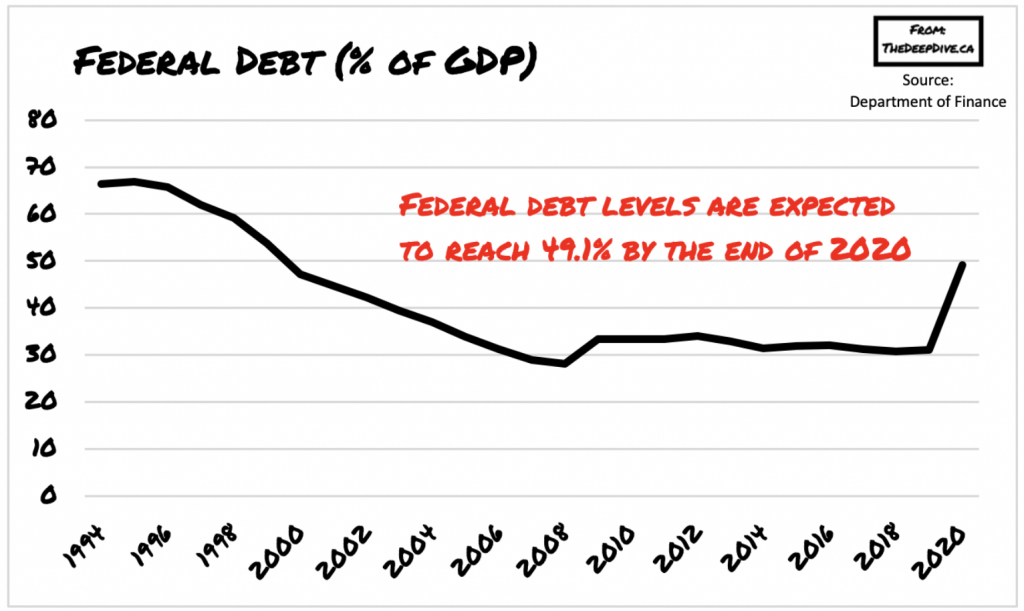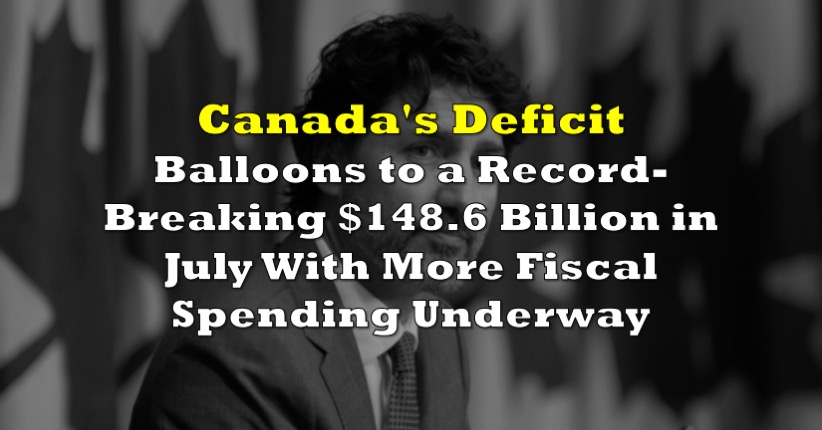Following Prime Minister’s Justin Trudeau’s promises of even more federal spending to alleviate the financial hardships posed by the coronavirus pandemic, it appears that debt burdens are going to be even higher than what many Canadians previously envisioned. The Finance Department recently released its monthly fiscal monitor results for the month of July, affirming an extensive deficit of $148.6 billion in the first four months of the 2020/2021 fiscal year.
According to the Finance Department, federal government spending on program expenses between the months of April and July totalled $215.7 billion, which amounts to a staggering increase of 106.2% from the same time, only a year prior. With respect to the major transfers to persons category, which this year is made up of employment insurance payments, children’s and senior’s benefits, as well as the Canada Emergency Response Benefit, spending reached nearly $87.3 billion – a 170.8% year-over-year increase.
Prior to the Finance Department’s July deficit calculations release, several major Canadian banks warned the federal government to take precautions before further hiking up the budget deficit for future debt burdens. Several of these banks including Bank of Nova Scotia, instead suggested that Prime Minister Justin Trudeau take a proactive approach towards programs that will lead to GDP growth, rather than focusing on more emergency spending.

Nonetheless, it appeared that the warnings fell on deaf ears, as the Prime Minister’s throne speech revolved around additional spending on emergency benefits In addition to extending the federal government’s emergency spending powers to the end of 2020. However, before the Prime Minister’s fiscal spending promises can be made reality, they first need to gain parliamentary approval.
Information for this briefing was found via the Finance Department. The author has no securities or affiliations related to this organization. Not a recommendation to buy or sell. Always do additional research and consult a professional before purchasing a security. The author holds no licenses.









